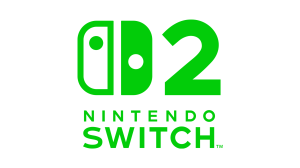Hollywood is approaching unprecedented times. The Writers Guild of America has been on strike since May 2nd after the group failed to reach a deal with the Alliance of Motion Picture and Television Producers. With the current entertainment landscape dominated by streaming, the WGA is seeking improved contracts that reflect the advancement of the industry. Despite television and film evolving exponentially over the course of the century, screenwriters’ pay has decreased by 14 percent over the last five years. Filmmakers and talent have shown almost unanimous support for the WGA over the past two months, and it appears that they are set to stand with the screenwriters imminently.
Videos by ComicBook.com
SAG-AFTRA, the Screen Actors Guild, failed to reach a new deal with the studios before its current contract expired at midnight. Now that there is no deal in place, SAG-AFTRA said its negotiating committee has voted unanimously to recommend a strike.
“SAG-AFTRA negotiated in good faith and was eager to reach a deal that sufficiently addressed performer needs, but the AMPTP’s responses to the union’s most important proposals have been insulting and disrespectful of our massive contributions to this industry,” SAG-AFTRA President Fran Drescher said. “The companies have refused to meaningfully engage on some topics and on others completely stonewalled us. Until they do negotiate in good faith, we cannot begin to reach a deal.”
The crux of the current divide comes down to the aforementioned streaming variable. Before over-the-top services became the norm, writers were compensated based on the success of broadcasted projects thanks to television viewership data. Today, studios have been unwilling to disclose their own viewership data, leaving the metric success of many of these streaming projects unknown.
Beyond that, the guilds want to put regulations in place regarding artificial intelligence. As evident by recent AI-generated artwork, songs, and scripts shared on social media platforms, the technology is evolving as an exponential rate. In an effort to get ahead of the curb, actors want to ensure that they are paid for any AI-generated use of their likeness.
The AMPTP responded to the failed negotiations by placing the blame on SAG-AFTRA.
“We are deeply disappointed that SAG-AFTRA has decided to walk away from negotiations,” the employer group said in a statement. “This is the Union’s choice, not ours. In doing so, it has dismissed our offer of historic pay and residual increases, substantially higher caps on pension and health contributions, audition protections, shortened series option periods, a groundbreaking AI proposal that protects actors’ digital likenesses, and more. Rather than continuing to negotiate, SAG-AFTRA has put us on a course that will deepen the financial hardship for thousands who depend on the industry for their livelihoods.”
This is the first time that SAG-AFTRA has gone on strike since 1980. The last time SAG-AFTRA and the WGA went on strike simultaneously dates back even further to 1960.
Stay tuned to ComicBook.com for updates on the actors’ and writers’ strikes.








